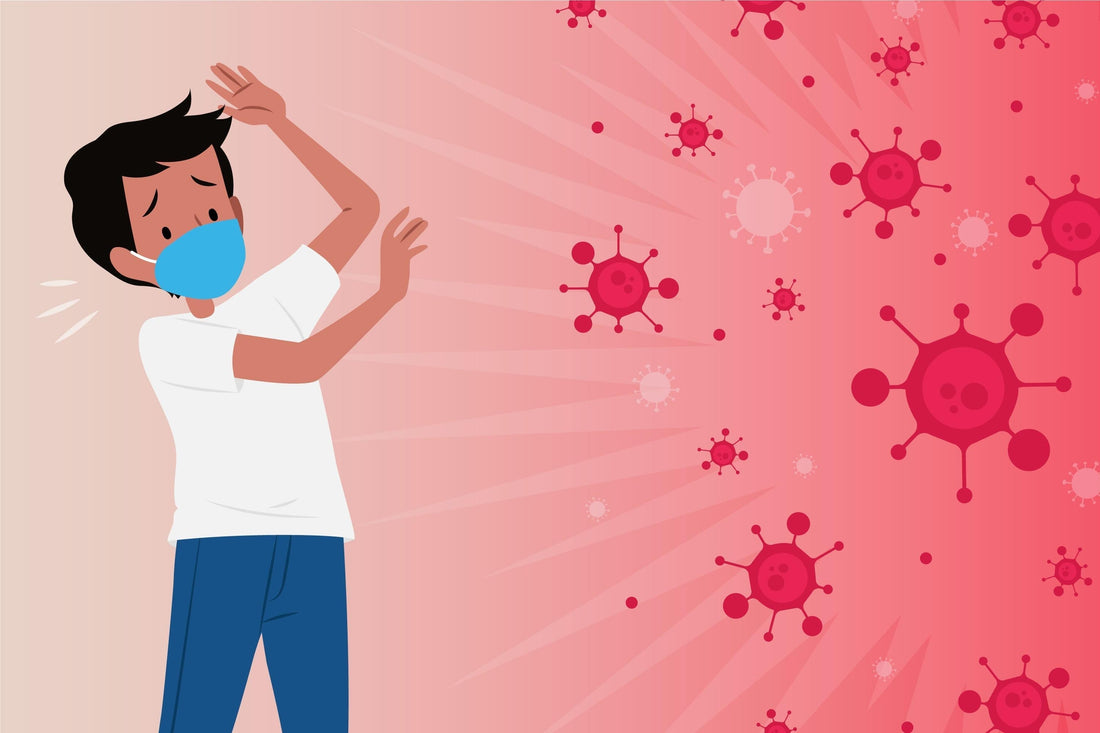Addison's disease, also referred to as primary adrenal insufficiency, is a rare and complex endocrine disorder characterized by the inadequate production of critical hormones, particularly cortisol, and occasionally aldosterone, from the adrenal glands. This hormonal insufficiency leads to substantial disruptions in metabolic processes, the body’s response to stress, and fluid balance. This article endeavors to provide an in-depth exploration of the etiology, clinical manifestations, and modern therapeutic strategies for Addison’s disease, while also presenting a comprehensive Ayurvedic approach to its management, which may complement conventional treatment paradigms.
Understanding Addison's Disease: A Deficiency in Hormonal Secretion
Addison’s disease is primarily an endocrine disorder wherein the adrenal glands fail to synthesize adequate levels of essential hormones, particularly cortisol, which plays a pivotal role in regulating the body’s stress response, metabolism, and immune function. The adrenal glands, located atop the kidneys, also produce aldosterone, which is crucial for the regulation of sodium and potassium levels in the blood. The dysfunction or destruction of these glands impairs the synthesis of these vital hormones, precipitating a cascade of physiological and biochemical disturbances throughout the body.
Etiological Factors of Addison’s Disease

The root causes of Addison’s disease are multifactorial, with autoimmune processes being the predominant factor. However, several other contributing factors have been identified:
-
Autoimmune Etiology: The body's immune system erroneously targets and attacks the adrenal cortex, leading to the destruction of adrenal tissue and diminished hormone production.
-
Infectious Pathologies: Tuberculosis (TB) and certain fungal infections, such as histoplasmosis, can invade and damage the adrenal glands, resulting in adrenal insufficiency.
-
Adrenal Hemorrhage: Severe trauma, blood loss, or hemorrhage in the adrenal glands may compromise their function.
-
Genetic Disorders: Conditions like adrenoleukodystrophy impair the adrenal glands' ability to function correctly, leading to adrenal insufficiency.
-
Neoplastic Growths: Cancerous growths, particularly metastasis to the adrenal glands, can interfere with their ability to produce hormones.
-
Pharmacological Interventions: Chronic use of certain medications, such as ketoconazole, may inhibit adrenal function, leading to an acquired form of adrenal insufficiency.
Clinical Manifestations of Addison’s Disease
The clinical presentation of Addison’s disease is often insidious, with symptoms evolving gradually over time. These manifestations may initially be nonspecific and are frequently mistaken for other conditions. Prominent clinical features include:
-
Fatigue and Muscular Weakness: Progressive fatigue, particularly in skeletal muscles, due to insufficient cortisol.
-
Unexplained Weight Loss and Anorexia: Resulting from metabolic dysregulation and inadequate caloric intake.
-
Hypotension: Low blood pressure, particularly orthostatic hypotension, due to inadequate aldosterone and cortisol levels.
-
Salt Cravings: A physiological compensatory response to the diminished levels of aldosterone, which is involved in sodium regulation.
-
Hyperpigmentation: Darkening of the skin, especially in areas subject to friction, scars, and pressure points, due to elevated levels of adrenocorticotropic hormone (ACTH).
-
Gastrointestinal Disturbances: Symptoms such as nausea, vomiting, and diarrhea are common due to the systemic effects of cortisol deficiency on digestion.
-
Psychological Manifestations: Mood changes such as irritability, anxiety, and depression, stemming from cortisol’s role in modulating stress.
-
Hypoglycemia: Low blood sugar levels, leading to symptoms such as dizziness, confusion, and even fainting.
In severe cases, adrenal crisis occurs, marked by acute abdominal pain, vomiting, profound hypotension, and loss of consciousness, necessitating urgent medical intervention.
Modern Treatment Protocols for Addison’s Disease
The cornerstone of Addison’s disease treatment is the replacement of the deficient adrenal hormones. The conventional therapeutic modalities include:
-
Corticosteroid Therapy: Hydrocortisone or prednisone is administered to replace cortisol, with dosages adjusted based on stress levels, illness, or physical exertion.
-
Fludrocortisone: This synthetic mineralocorticoid is used to replace aldosterone and manage electrolyte imbalances, particularly in relation to sodium retention.
-
Management of Adrenal Crisis: In acute emergencies, intravenous corticosteroids and fluids are administered to rapidly restore circulatory stability.
-
Regular Monitoring: Blood tests for sodium, potassium, and cortisol levels are routinely performed to optimize treatment and avoid complications.
-
Emergency Preparedness: Patients are typically advised to carry an injectable form of hydrocortisone for use in times of acute stress or medical crisis.
With appropriate treatment and vigilant monitoring, individuals with Addison’s disease can lead relatively normal and productive lives.
Addison's Disease and Ayurvedic Insights: A Holistic Therapeutic Framework
In the Ayurvedic paradigm, Addison’s disease is understood as a manifestation of Dhatu Kshaya (tissue depletion) and a profound imbalance in the Vata, Pitta, and Kapha doshas. The underlying pathophysiology is thought to involve disturbances in the Agni (digestive fire), Ojas (vital essence), and Prakriti (constitutional factors), leading to systemic weakness and adrenal insufficiency. Ayurvedic treatment offers a multifaceted approach that targets the root imbalances in the body, aiming to restore equilibrium and rejuvenate the affected organs, particularly the adrenal glands.
Nidanam (Etiology) of Addison's Disease in Ayurveda
From an Ayurvedic perspective, the causes of Addison’s disease are primarily rooted in Vata-Vitiation and Pitta imbalances, along with the accumulation of Ama (toxins). These factors result in a depletion of the body’s vital tissues and compromise the functionality of the adrenal glands. The causes of Addison’s disease in Ayurveda include:
-
Vata-Vitiation: Aggravation of Vata dosha leads to depletion of Rasa Dhatu (plasma), Rakta Dhatu (blood), and Mamsa Dhatu (muscle tissue), thereby causing profound fatigue, weakness, and muscle wasting.
-
Pitta-Vitiation: An excess of Pitta dosha contributes to autoimmune inflammation and the destruction of adrenal tissue, a hallmark of Addison’s disease.
-
Ama Accumulation: Dysfunctional digestion (reduced Agni) leads to the formation of Ama, which obstructs the flow of Prana (vital energy) and Ojas, further impairing overall health.
-
Emotional and Physical Stress: Chronic emotional stress or physical trauma disrupts the balance of Vata and Pitta, aggravating the condition and exacerbating the adrenal dysfunction.
Nidanam (Causes) in Sanskrit:
"Vata-pitta-kapha-vyadhis,
Agni-dushta-rasasamskritah,
Amoorya-chhedah-svabhavah,
Chikitsaya-patitam-purusham."
Lakshanam (Symptoms) in Ayurveda
The symptoms of Addison’s disease, from an Ayurvedic perspective, manifest due to the imbalances in Vata, Pitta, and the accumulation of Ama. The typical symptoms include:
-
Fatigue and Weakness: Depletion of Rasa and Rakta Dhatu leads to systemic fatigue and diminished vitality.
-
Muscle Wasting and Weight Loss: Due to the depletion of Mamsa Dhatu, there is a progressive loss of muscle tissue.
-
Hypotension: Insufficient Rakta Dhatu and Vata instability contribute to low blood pressure, especially when transitioning from sitting to standing.
-
Salt Cravings: Due to aldosterone deficiency, there is a compensatory increase in Kapha dosha, leading to cravings for salt.
-
Hyperpigmentation: Excessive Pitta leads to the darkening of the skin, particularly in areas subjected to pressure or friction.
-
Digestive Disturbances: Impaired digestion (Agni) results in the accumulation of Ama, causing nausea, vomiting, and bloating.
-
Psychological Symptoms: Mood swings, irritability, and depression due to Vata-Pitta imbalance.
Lakshanam (Symptoms) in Sanskrit:
"Kshaya-rasa-mamsa-vahya,
Vata-pitta-ghana-dahanah,
Chidra-jivita-chidra-vruddhi,
Vishadita-udara-vedana."
Chikitsa Sutra (Treatment) for Addison’s Disease in Ayurveda
Ayurvedic treatment for Addison’s disease aims to restore balance in the body’s doshas, rejuvenate the tissues, and enhance Agni (digestive fire). The therapeutic protocols focus on pacifying Vata and Pitta, improving digestion, detoxifying the body, and restoring vitality. The core components of Ayurvedic treatment for Addison’s disease include:
1. Pacification of Vata and Pitta:
Herbs such as Ashwagandha (Withania somnifera), Brahmi (Bacopa monnieri), and Guduchi (Tinospora cordifolia) are employed to calm the nervous system, reduce stress, and support tissue regeneration.
2. Strengthening of Agni (Digestive Fire):
Triphala and Punarnava (Boerhavia diffusa) are key herbal formulations that enhance digestion, cleanse the system of toxins (Ama), and promote overall metabolic health.
3. Rejuvenation (Rasayana):
Chyawanprash, Shatavari (Asparagus racemosus), and Gokshura (Tribulus terrestris) are potent rejuvenating herbs that restore vitality, nourish tissues, and fortify adrenal function.
4. Detoxification (Shodhana):
Therapies such as Virechana (purgation) and Basti (medicated enemas) are employed to cleanse the body of accumulated toxins (Ama) and restore the balance of Vata and Pitta.
5. Dietary and Lifestyle Adjustments:
A diet emphasizing easy-to-digest foods such as moong dal, khichdi, and ghee is recommended. Excessive salt, spicy foods, and processed items should be avoided.
6. Stress Management:
Practices such as Yoga, Meditation, and Pranayama (breathing exercises) are fundamental for stress reduction, fostering emotional stability, and promoting overall well-being.
Chikitsa Sutra in Sanskrit:
"Vata-pitta-shamana-dravya,
Triphala, Guduchi-rasayana,
Shatavari, Ashwagandha, Gokshura,
Jivana-pushtikara-vasana."
Conclusion
Addison's disease, a complex endocrine disorder, requires a multifaceted treatment approach that integrates both modern medical therapies and holistic Ayurvedic interventions. While conventional treatments focus primarily on hormone replacement, Ayurveda offers a deeper, root-cause-oriented approach to address the imbalances within the body, particularly with regard to the adrenal glands. By synergizing these two therapeutic paradigms, individuals with Addison's disease can achieve optimal health, vitality, and a restored sense of well-being.
At Deep Ayurveda, a renowned Ayurvedic clinic in Mohali, personalized treatment plans are tailored to individual needs, incorporating Ayurvedic remedies, detoxification therapies, and lifestyle guidance to rejuvenate adrenal function and promote long-term wellness.







